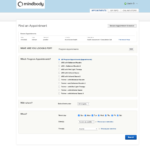Did you know that aging is a disease? With aches and pains, low energy, poor eyesight, weight gain, and disturbed sleep starting in our early 30s, most of us appreciate firsthand how aging doesn’t get any easier. It’s certainly not hard for us to equate aging to illness. It wasn’t until 2018 however, that the World Health Organization (WHO) added aging to its International Classification of Diseases.1 Classifying aging as a disease is extremely important to the field of medicine, as it allows for new research and funding into innovative therapeutics to delay or reverse age-related illnesses and degeneration.2,3 One area of research are sirtuins, a family of seven proteins critical to DNA expression and aging. Sirtuins can only function in conjunction with NAD+ (nicotinamide adenine dinucleotide), a coenzyme present in all living cells.
Aerobic endurance training, limiting alcohol, and calorie restriction through fasting can help to naturally increase NAD+. The bad news, by middle age, our NAD+ levels are 50% what they were in our youth.5 Studies are showing that boosting NAD+ levels increases insulin sensitivity, decreases inflammation, and reverses mitochondrial dysfunction, all key areas that contribute to optimal health.6, 7 While work remains underway to determine the best method to increase NAD+, supplementing with NAD precursors, including nicotinamide riboside(NR) and nicotinamide mononucleotide (NMN) show promise.8,9
Taken orally, NMN is rapidly absorbed and converted to NAD+.10 NMN studies in mice show many age related benefits including improved cognition, heart health, metabolism and age related weight gain.12 13 14 15 16 Given the broad benefits of boosting NAD+ by supplementing with NMN, it may indeed become a standard, conventional anti-aging intervention.11
While we eagerly await long term human trials, those who visit us here in Calgary, can take some of the guess work out of NAD+. We like to test intracellular NAD+ levels prior to supplementation so that we can see the effects of a course of NMN on your NAD+ levels. A few other considerations include dosing and purity. We like to dose at approximately .15g – .20g per kg of body weight which is potentially higher than many supplements found online. Lastly, poor quality NMN can contain a by-product called LPS (lipopolysaccharide) capable of causing an endotoxic reaction. We always ensure we have a certificate of testing showing nondetectable levels of LPS from our supplier.







